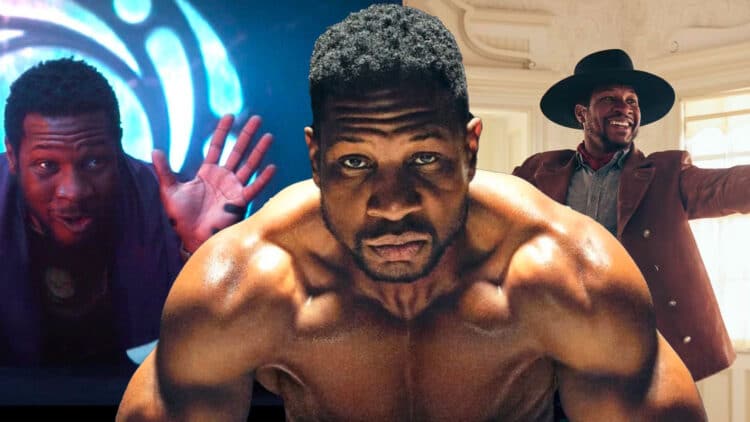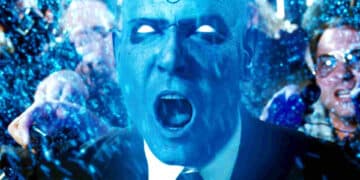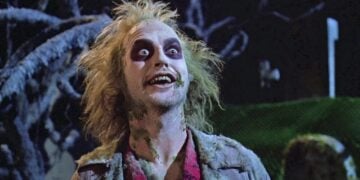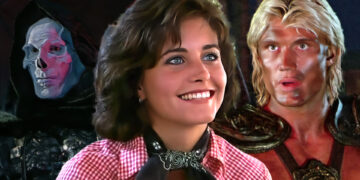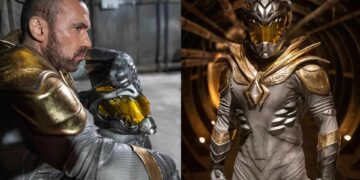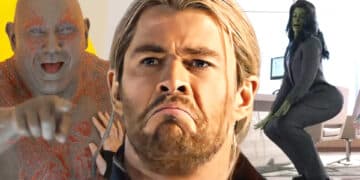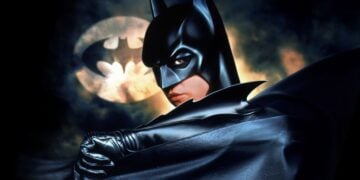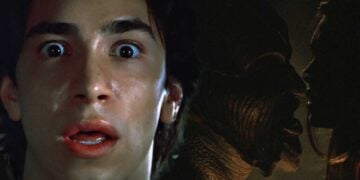Sigh. Another one. I never thought I’d ever be the one to pull DJ Khaled quotes from my bag of tricks, but here we are. It would seem that circumstances demand it. Unlike the ubiquitous Khaled’s reasons for boasting about ‘another one’ – celebrating moneybags, blessings and meals – I’d argue that mine are more serious because here we are again, talking about yet another big-time celebrity who has transgressed in a consequential way, against another person (or possibly many others like her), against the law, and against the people who have put him on a pedestal.
Let’s get this out of the way first – the Jonathan Majors downfall has been news fodder for as long as the story has been out, that the meteorically rising Hollywood star (Lovecraft Country, Loki, Ant-Man and the Wasp: Quantumania, Creed III) harassed and assaulted his former girlfriend, Grace Jabbari. He was convicted for some of the offences and, at the time of writing this post, was scheduled to be sentenced, but there were delays in this process due to his lawyers filing post-conviction motions.
So, why are we still talking about the man? The simple reason is that a bigger, more philosophical question is being asked. It’s one that everyone interested in this man, his career, and this case, is still grappling with: Does Jonathan Majors deserve a comeback? It’s not for me to play judge and jury in this matter. Still, it would be interesting to explore the kinds of opinions that arise when a huge star – especially one as fascinating as Majors for the reasons mentioned above (i.e. that he was on the rise… fast) – runs afoul of the law and public opinion. I want to make the case that if we’re talking about whether or not he deserves another shot at a career in Hollywood, there’ll be two camps with something to say – those who say ‘yes’ and those who say ‘no’. There’s more to it, though. Even within those two camps, I propose that there are sub-camps, which I’ll do my best to break down for the rest of this article.
The ‘Yes’ Camp
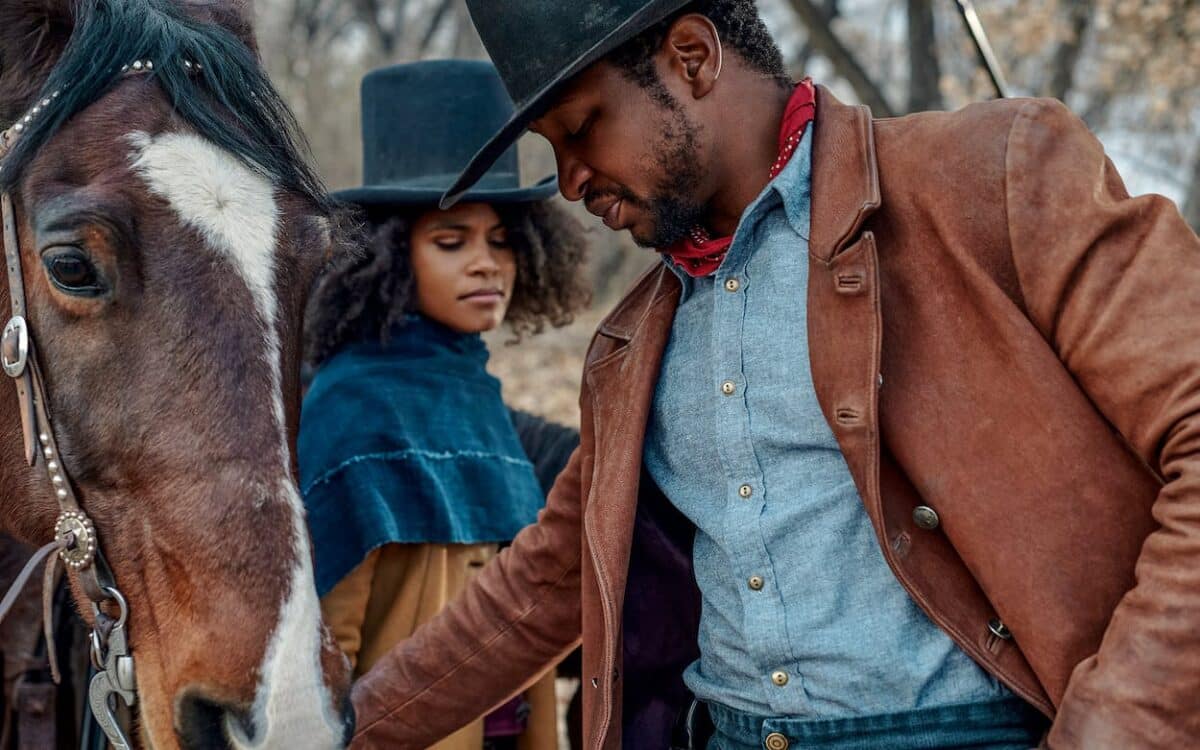
The first group of people who will argue for Majors getting a chance to come back, I believe, are those who place a clear distinction between a person’s private life (what he does in his own space and time when nobody’s watching) and their professional life. In the case of an artist and performer like Majors, they don’t care about his personal strengths and weaknesses. They simply see the man for the one thing they know him for – his ‘product’. If he’s good at acting, let him keep acting. Nothing else really matters.
The problem others might have with this position: Should people who do horrible, unspeakable things get a free pass and suffer no consequences just because they’re good at their jobs? Certainly not.
Then there’s a second group of people who might side with Majors getting a second chance. These people view this from a broader perspective: “all have sinned and fall short”. Who has the right to judge another? We all make mistakes, right? Before you get upset reading this, bear with me and let me expand on this idea a little more. I don’t believe this sub-group of people utter an unconditional ‘yes’. I think it’s more of a yes with an ‘if’ attached. So, they’re saying, “Yes, if Jonathan Majors can show remorse and deal with the full legal and moral consequences of his actions and reform and change his behaviour, sure, he has every right to come back and pursue his career as an actor eventually. They argue for a restorative approach, arguing that we all deserve a second chance only if we are willing to change and do better.
The problem others might have with this position: In a world of PR, spin and brilliant acting (Majors is an actor, after all), how can we tell when a person has really changed?
The ‘No’ Camp
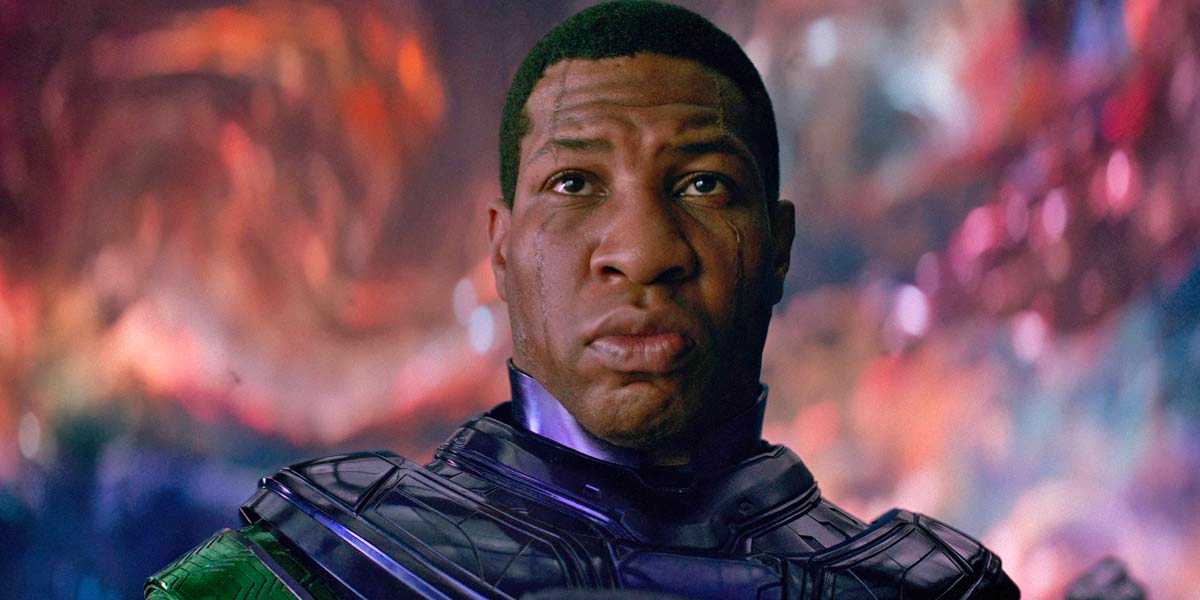
Here, I think the first group of people who say Jonathan Majors doesn’t deserve a comeback are those who hold the strict view that if you’re a public figure, you must live by a higher standard. There’s more scrutiny on you, the lights are brighter on you, and you may even be a role model to the young. Therefore, to be associated with anything to do with abuse and harming other people, especially in a world where we have such a high incidence of violence against the vulnerable and weak, deserves a much stricter punishment (both moral and legal) when you are a celebrity. The moral punishment here would be to lose the chance at being in the limelight because they’ve failed to use it in an exemplary way.
The problem others might have with this position: Celebrities are people, too. They make mistakes and poor judgment calls like everyone else. In any case, they never technically signed up to be anyone’s role model.
The second group of people in the ‘no’ camp is interesting because I think they’d very much like to have belonged to the ‘yes, if…’ group. They want to believe we all deserve another opportunity to prove that we want to do better. Still, they won’t tolerate it if they see no remorse or contrition. Enter the audio clip from Jonathan Majors’ ABC interview. In truth, the feeling I got from watching this 17-minute sit-down spoke little to me about remorse for poor decisions and wrong actions.
Many have criticised Majors for handling his first interview poorly since the story broke. The LA Times, quoting the founder and CEO of Miller Ink, a Los Angeles-based strategic communications and crisis management firm, Nathan Miller, brought up several missteps by the Ant-Man and the Wasp star, namely that he ‘did not take the stand during his trial, awkwardly maintained his innocence while declaring he was the true victim. He has been slammed for his shaky demeanour and evasive responses. When asked about how Jabbari’s injuries, which were photographed by police, came about, Majors said, “I wish to God I knew.”’
It’s stuff like this that makes it hard for those who believe in restorative justice and want to bat for Majors (and, in fact, anyone who does wrong) to do so. When the evidence clearly shows that you bear responsibility for things going wrong, whether partly or wholly, do you own up to it or still try to show the world that you’re The Man?
Does Jonathan Majors Deserve A Comeback Then?
Ultimately, it’s no cop-out for me to say that it’s not up to me if Jonathan Majors deserves a comeback. We all make determinations based on our beliefs and convictions about celebrity, crime, violence, race, second chances, and life in general. The evidence about some of what transpired between Majors and Jabbari is there for us to see. Thanks to the prevalence of CCTV cameras and other technologies, things aren’t as challenging to figure out as they would have been in OJ’s day. We now need to look for what Majors believes about what happened and what should be done about it going forward. Sure, some of it may be out of his hands, but some certainly is, so all we have to do is listen and pay attention.
Where do you stand specifically when it comes to Jonathan Majors making a comeback to Hollywood? Should he return as Kang in the MCU? Or should Kang be killed off in Deadpool & Wolverine?


